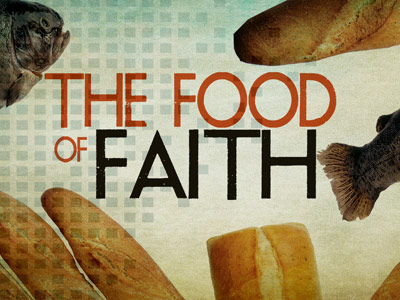-
Food For Man And Beast. Series
Contributed by John Lowe on Apr 13, 2018 (message contributor)
Summary: These final three verses are a closing statement to the first chapter. It states that God gave to man every “herb bearing seed,” and “every tree, in the which is the fruit of a tree yielding seed” from which he can derive his food.
June, 11 2013
Commentary on the Book of Genesis
By: Tom Lowe
Lesson I.A.8: Food for Man and Beast.
Gen. 1:29-31. (KJV)
29 And God said, Behold, I have given you every herb bearing seed, which is upon the face of all the earth, and every tree, in the which is the fruit of a tree yielding seed; to you it shall be for meat.
30 And to every beast of the earth, and to every fowl of the air, and to every thing that creepeth upon the earth, wherein there is life, I have given every green herb for meat: and it was so.
31 And God saw every thing that he had made, and, behold, it was very good. And the evening and the morning were the sixth day.
Commentary
29 And God said, Behold, I have given you every herb bearing seed, which is upon the face of all the earth, and every tree, in the which is the fruit of a tree yielding seed; to you it shall be for meat.
The final three verses are a closing statement to the first chapter. It states that God gave to man every “herb bearing seed,” and “every tree, in the which is the fruit of a tree yielding seed” from which he can derive his food. The word “every” is expressive of the rich bounty bestowed upon man—“And the LORD God commanded the man, saying, Of every tree of the garden thou mayest freely eat” (Gen 2:16; KJV). Although Adam was a very great man, a very good man, and a very happy man, yet the Lord God commanded him; and the command was not belittling to his greatness or a rebuke of his goodness, and it did not decrease his happiness in any way. Let us acknowledge God’s right to rule us, and our own obligation to be ruled by him; and never allow our will to contradict, or compete with, the holy will of God.
There is no positive evidence that animals were used for food before the flood. Noah was the first to be granted this privilege—“I have given them to you for food, just as I have given you grain and vegetables. But you must never eat any meat that still has the lifeblood in it” (Gen 9:3-4; NLT); and it has been in effect for his posterity ever since
In addition to man, three classes of animal life were given vegetation for eating, as well: the beasts of the earth, the fowl of the air, and the creeping things upon the earth. From this statement I assume that man was a vegetarian at first, and not until after the Flood did man become a meat eater. It would appear then that man was originally intended to live upon vegetables only; and since there is no record of a change having been made in the structure of men's bodies after the flood, it is not probable that any wholesale change was made in the kind of food they ate, and that the ancient people had a diet consisting mostly of fruit and vegetables, and some meat. It may also be inferred from this passage that no animal whatever was originally designed to prey on other animals; because nothing is said here to be given to any beast of the earth besides green herbs. Before sin entered into the world, there could not have been any deaths, and certainly no violent deaths. But by the particular structure of the teeth of animals God prepared them for that kind of food which they were to subsist on after the FALL—vegetarians with flat molars, and meat eaters with sharp canines.
This passage is the third part of the sixth day’s work, and there was not any new creation, but a gracious provision of food for all flesh—“Who giveth food to all flesh: for his mercy endureth for ever” (Psalms 136:25; KJV). He made man and beast and He took care to preserve both—“Thy righteousness is like the great mountains; thy judgments are a great deep: O LORD, thou preservest man and beast” (Psalms 36:6; KJV). Another tremendous characteristic of God is His attention to the innumerable birds, the abundance of fish, and the infinite armies of insects, as well as the increasing population of men. All would have no sustenance were it not for the providential care of God.
Observe:
1. That which should make us humble. We were made out of the earth, and we are maintained out of it. Once men did eat angels’ food, bread from heaven; but they died—“Your fathers did eat manna in the wilderness, and are dead” (John 6:49; KJV). The Israelites ate manna sent from heaven for forty years, but they died in the wilderness. The bread which they ate could not save them from death. Though God interfered in their behalf, yet they died. “He causeth the grass to grow for the cattle, and herb for the service of man: that he may bring forth food out of the earth” (Psalms 104:14; KJV). Does God care for cattle? Yes, and there is not an animal alive that does not share his merciful provision. He brings forth food out of the earth; plants, herbs, and nutritious grain. God takes care of man, and of all those animals which are so necessary to the convenience and comfort of man. But here is meat that endures to everlasting life; the Lord evermore give us this.

 Sermon Central
Sermon Central



